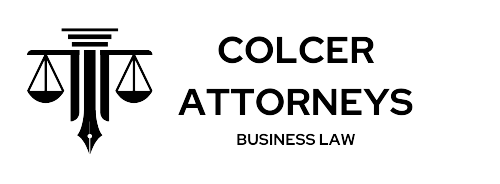I. Introduction
Romania, as a signatory to the 1958 New York Convention on the Recognition and Enforcement of Foreign Arbitral Awards (“New York Convention“), has established a legal framework that facilitates the recognition and enforcement of arbitral awards rendered outside its jurisdiction. The recognition and enforcement procedure, known as exequatur, governed by Art. 1.124 to 1.133 of the Romanian Civil Procedure Code (“CPC“), ensures that foreign arbitral awards are granted the same legal effects as domestic awards, provided they meet specific procedural and substantive conditions. This article briefly examines the legal framework, requirements, and procedural steps involved in the recognition and enforcement of arbitral awards in Romania.
II. Legal Framework
The recognition and enforcement of foreign arbitral awards in Romania are primarily regulated by:
- The New York Convention, to which Romania acceded in 1961, providing an internationally standardized approach to enforcement of foregin arbitral awards;
- Art. 1.124-1.133 of the CPC, which set forth the national procedural rules governing the exequatur;
- other relevant articles for civil procedures from the CPC.
III. Conditions for Recognition and Enforcement
To obtain recognition and enforcement, the party seeking exequatur must demonstrate that the arbitral award satisfies the following conditions:
- validity of the arbitral award: The award must be final and binding in the jurisdiction where it was issued;
- competent tribunal: The award must have been issued by a duly constituted arbitral tribunal with jurisdiction over the dispute;
- compliance with due process: The award must not have been issued in violation of fundamental procedural rights, such as the right to be heard;
- non-contravention of public order: The enforcement of the award must not be contrary to the public order of Romanian private international law (ordre public).
IV. The Exequatur Procedure
The exequatur process involves several key procedural steps:
1. Filing the Application
• the application for recognition and enforcement is filed with the tribunal in whose jurisdiction the defendant has his/her domicile/office. If the jurisdiction cannot be established under this criterium, the Bucharest Tribunal will be competent to hear the case;
• the application must include the arbitral award and the arbitration agreement, in original or in copy, which are subject to legalization, or apostille – in the case of arbitral awards rendered in member states of the 1961 Hague Convention on the abolition of the requirement of legalization for foreign public documents;
• the application must also include a legalized translation into Romanian of the arbitration agreement and the arbitral award;
• a stamp duty of RON 20 (EUR 4) is applicable.
2. Judicial Review
• the court examines whether the award meets the formal and substantive requirements imposed by the New York Convention and the CPC. The tribunal cannot examine the arbitral award on the merits of the dispute;
• the party against whom recognition and enforcement of the arbitral award is sought may defend by invoking the grounds provided for in Art. 1.129 CPC, such as violation of the right of defence, exceeding the jurisdiction of the arbitral tribunal or violation of public order;
• the tribunal may suspend the procedure for recognition and enforcement of the arbitral award if its annulment or suspension is requested in the state in which it was rendered or in the state under the law of which it was rendered.
3. Issuance of the Exequatur Decision
• if the court considers that the conditions for the recognition of the arbitral award are met, it issues a decision that can be enforced in the same way as a national court decision. For the enforcement of the exequatur decision, a subsequent application for enforcement must be filed and granted by the competent enforcement court;
• the decision by which the application for exequatur was resolved may be appealed within 30 days of its notification.
V. Grounds for Refusal
The recognition and enforcement of an arbitral award may be refused in Romania under the following circumstances:
• the parties to the arbitration agreement lacked legal capacity;
• the arbitral tribunal exceeded its jurisdiction;
• the composition of the tribunal or the arbitral procedure was not in accordance with the agreement of the parties;
• the award has not yet become binding or has been annulled in the jurisdiction where it was issued;
• the award conflicts with Romanian public order.
VI. Conclusion
Romania provides a well-established legal framework for the recognition and enforcement of foreign arbitral awards, ensuring compliance with international standards, particularly the New York Convention. The exequatur procedure, as governed by Art. 1.124-1.133 CPC, provides clarity and predictability for foreign investors and arbitral award creditors seeking enforcement in Romania. By adhering to both international and domestic legal provisions, Romania continues to uphold the principle of legal certainty in cross-border dispute resolution.
This article does not constitute legal advice and does not engage the liability of the author for the opinions expressed. We do not assume responsibility for any legislative changes made after the publication of this article. If you have any questions regarding the topic covered, please contact us.




